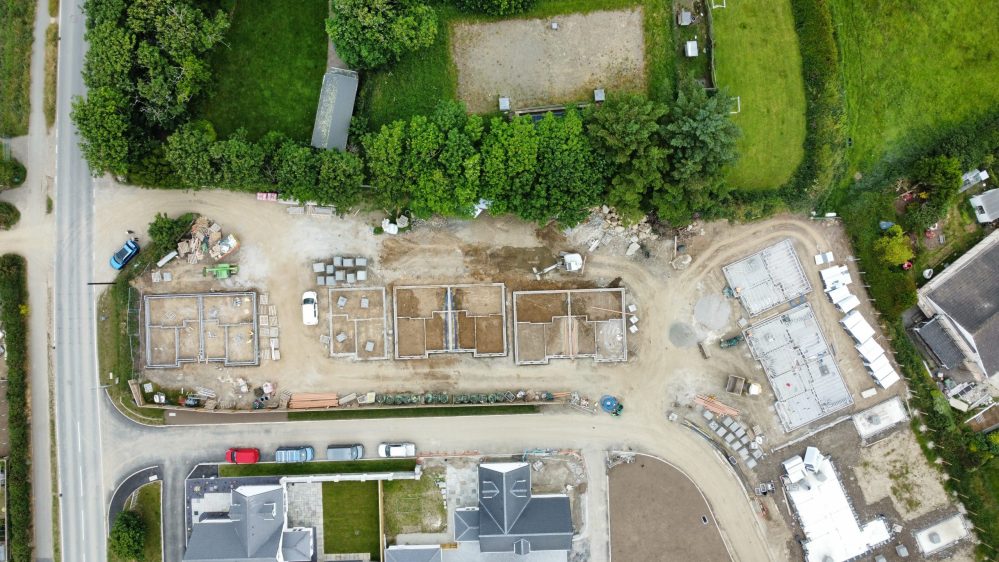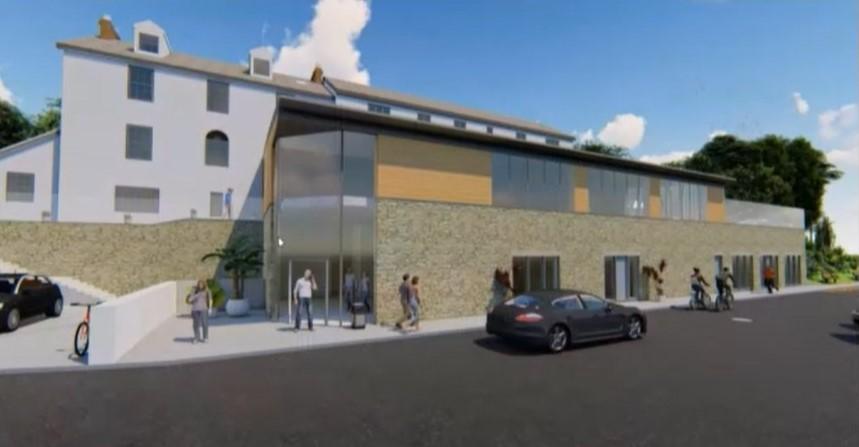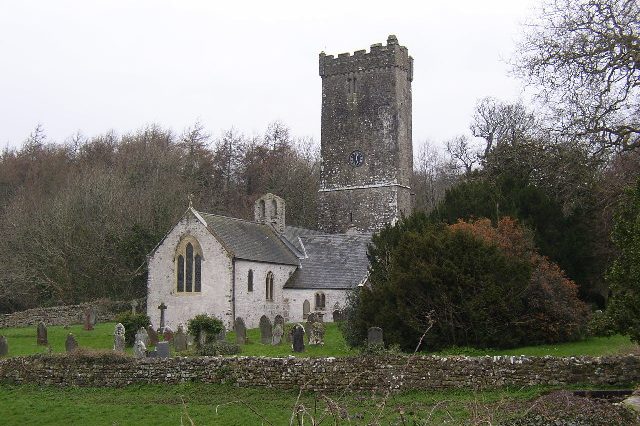Politics
End of the line for Right to Buy?


Carl Sargeant: Social housing ‘under considerable pressure’
NEW LEGISLATION which will abolish one of the most controversial policies of the 1980s was introduced in the National Assembly this week.
The Right to Buy legislation was introduced by Margaret Thatcher in 1980, though individual councils could sell properties to tenants prior to this.
While some credited the policy, which was one of the bedrocks of the Thatcher administrations, with raising money for public finances, and giving people their only opportunity to own a home, it was also criticised for creating a shortage of affordable rented property and artificially inflating the housing market. It led to the sale of 139,000 Local Authority-owned houses in Wales – around 45% of the available stock – since 1980.
In enacting this Bill, Wales will follow from Scotland, who banned Right to Buy in 2016.
The Bill will provide for the Right to Buy, the Preserved Right to Buy and the Right to Acquire for tenants of local authorities and registered social landlords to be abolished after a period of at least one year following Royal Assent.
In introducing the Bill, the Welsh Government aims to protect the Welsh stock of social housing from further reduction, ensuring it is available to provide safe, secure and affordable housing for people who are unable to take advantage of the housing market to buy or rent a home.
To encourage the development of new social housing, the Bill, if passed by the Assembly, will provide that the Right to Buy and Right to Acquire will end for new homes two months after Royal Assent. This will help encourage social landlords to build new homes in the knowledge that they will not be at risk of being sold after only a relatively short period.
The Bill complements other actions being taken by the Welsh Government to increase the supply of housing.
Ahead of the Bill’s introduction, Communities Secretary Carl Sargeant said: “Our social housing is a valuable resource, but it is under considerable pressure. The size of the stock has declined significantly since 1980 when the Right to Buy was introduced. The number of sales is equivalent to 45% of the social housing stock in 1981. This has resulted in people in housing need, many of whom are vulnerable, waiting longer to access a home they can afford.
“The Bill supports the Welsh Government’s wider aims of a more prosperous and fairer Wales, helping to tackle poverty by protecting our stock of social housing from further reduction.
“I recognise the proposal affects existing tenants and we will ensure tenants are made aware of the effect of the Bill in good time before abolition takes place. The Bill will require the Welsh Government to publish information, which social landlords in turn must provide to every affected tenant, within two months of the Bill receiving Royal Assent.
“We have set an ambitious target of creating 20,000 affordable homes in this term of government. Alongside social housing this will include schemes such as Help to Buy and Rent to Own to enable people on modest incomes to own their own homes. We are supporting low cost home ownership and we are expanding the social housing stock. Abolishing the Right to Buy will complement these other actions we are taking in order to support people in housing need.”
Councillor Dyfed Edwards, the Welsh Local Government Association spokesperson for Housing, said: “At a time of acute shortages of social rented homes, and with many thousands of people currently on housing waiting lists, the proposal from the Welsh Government to abolish right to buy is a welcome step in tackling a growing problem in Wales. It is essential that people’s access is improved to good quality social rented housing in order to enhance people’s lives, and also to revitalise local communities”
The plans were backed by Plaid Cymru. A party spokesperson said: “We welcome the proposed move to scrap it altogether and regret that the Labour Welsh Government has taken so long to abolish this most Thatcherite of policies.”
However, perhaps unsurprisingly, the Welsh Conservatives were less enthusiastic about the proposal.
Party Housing Spokesman, David Melding AM , said: “The Welsh Government’s bid to end the right of social housing tenants to buy their homes begins its journey through the National Assembly for Wales today.
“Labour’s decision to revoke the Right to Buy in Wales will undermine social mobility, depriving thousands of families of an opportunity to get on the housing ladder for the first time.
“It’s easy for Welsh Government ministers to lecture, but this legislation will simply serve to deny hardworking families an opportunity to own their own homes.
“There is a severe shortage of affordable housing in Wales because Labour hasn’t built enough affordable homes, and not because council tenants have had a chance to buy theirs.
“The Right to Buy Scheme doesn’t deplete the housing stock, it empowers people to take a stake in the home in which they already live.”
News
Community asked for views on allocation of new St Davids homes

THE FIRST phase of Pembrokeshire County Council’s Glasfryn housing development in St Davids is progressing well with the second phase also underway.
The development being built by GRD Homes Ltd, began in November 2023, with a first phase completion date of Winter 2024 looking hopeful, ahead of the scheduled plans.
The first phase consists of seven properties, including a mixture of one and two bedroom bungalows
As completion draws closer the properties will be advertised via Pembrokeshire Choice Homes.
Ahead of this, the Council’s housing team will be holding community engagement on the 13th August 2024 at the Ty’r Pererin Centres, Quickwell Hill, St Davids, SA62 6PD, 5pm-7pm.
This will be a chance for officers to liaise with the local community about the allocation process for these properties.
Glasfryn’s second phase is well underway, with the initial groundwork already completed. This phase includes a further 11 two bedroom bungalows, with a completion date in late 2025.
These bungalows will meet the latest Welsh Government’s Development Quality Requirement, and will be energy efficient, built to EPC A specification and include solar panels to help tenants with running costs.
The Glasfryn development is funded in partnership with Welsh Government.
Cabinet Member for Housing Cllr Michelle Bateman said: “We are really keen to work with the community on a local lettings policy for these new properties, as we have done for our developments in other parts of the County.”
If you have any queries please email the Customer Liaison Team on [email protected], phone them on 01437 764551, or visit Housing’s Facebook page.
Business
Legal call to stop £6m expansion of holiday park still ongoing

A LEGAL request to overturn a Pembrokeshire County Council-granted approval for a £6m expansion of a south Pembrokeshire holiday park is still ongoing despite a previous announcement it had been turned down, county planners heard.
Back in February, Pembrokeshire planners were informed a legal challenge to a November 2023-granted application for works at Heritage Park, Pleasant Valley/Stepaside had been launched.
The holiday park scheme had previously been backed twice by county planners after a ‘minded to approve’ cooling-off period was invoked as it was against repeated officer recommendations to refuse.
The controversial scheme by Heritage Leisure Development (Wales) Ltd includes the installation of 48 bases for holiday lodges, a spa facility at a former pub, holiday apartments, a café and cycle hire, equestrian stables, a manège and associated office, and associated works.
It is said the scheme, next to the historic remains of the 19th century Stepaside ironworks and colliery, will create 44 jobs.
Officer grounds for refusal, based on the Local Development Plan, included the site being outside a settlement area.
Along with 245 objections to the current scheme, Stepaside & Pleasant Valley Residents’ Group (SPVRG Ltd) – formed to object to an earlier 2019 application which was later withdrawn – also raised a 38-page objection, with a long list of concerns.
A failed legal challenge to try and overturn a council decision to approve three separate planning applications at Heritage Park was launched in 2021 by SPVRG Ltd, which failed in early 2022; the council awarded costs of £10,000 despite external legal fees paid totalled £34,000 plus VAT.
At the June meeting of Pembrokeshire County Council’s planning committee members were told the recent judicial review call by SPVRG Ltd had been refused by the high court, the grounds put forward “not considered to be reasonably arguable”.
Committee chair Cllr Simon Hancock said a council request for SPVRG Ltd to pay costs incurred by the county council in defending the claim had now been submitted.
Following that, at the July planning meeting, in his chair’s announcement, Dr Hancock gave a clarification on the position.
“I can advise that whilst the application for judicial review was refused by the High Court Judge on May 31, 2024, the appellants have challenged this decision.
“This matter is listed for a renewal hearing, and accordingly the legal challenge is still in progress; I’m hoping that’s a clarification from the announcements I made back in June.”
Responding to the clarification, Trish Cormack of SPVRG Ltd pointed out it was not “an appeal,” adding: “Firstly, we are ‘requesting the decision to be reconsidered at a hearing,’ which is a bit less dramatic than ‘challenging the decision’.
“Secondly, the claim remains open for seven days after the decision on the papers in expectance of you requesting the hearing, and the form 86B comes attached to the decision with the case number already filled in for you. This is just part of the process for a judicial review. If the Judge really thought there were no merits to the case, he was free to issue a ‘without merits refusal’.
“That would have ended the claim there and then. The only way to resurrect it would have been to take it to the appeal court. But he didn’t.
“Thirdly, the announcement makes it sound like our ‘challenge’ had happened after their previous announcement, whereas in fact we only had seven days from May 31 in which to make the request, so they knew the moment we did (June 7) because we had to simultaneously email it to the court, PCC and the developer’s agent. So, they knew full well that there would be a renewal hearing.”
Farming
Farm building scheme near Lawrenny given go-ahead by planners

AN APPLICATION for a storage building at a south Pembrokeshire farm, made by a family member of an officer on Pembrokeshire County Council’s planning service, has been given the go-ahead by the authority’s planning committee.
In an application recommended for approval at the July 23 meeting of the authority’s planning committee, Laura Elliot sought permission for the erection of an agricultural storage building at Tedion Farm, a dairy farm near Lawrenny.
The application had been brought to committee, rather than being delegated to planning officers, due to the family connection.
The farm, near to the Pembrokeshire coast National Park border, comprises 270 milking cows and dairy heifer replacements kept on the farm comprising land over 138 hectares. The farm is mainly down to grass and the cows are paddock grazed in order to utilise grass efficiency.
No objections had been received from local community council Martletwy.
A report for members said: “The application seeks consent for the erection of agricultural storage building. The erection of an agricultural building will be used to store stay, hay and farm machinery.
“The building would be located within the existing farm complex, to the north-east of the site, adjacent to the main farm dwelling. The building will measure 18 metres in length by 13.6 metres in width, with a pitched roof height of 5.71 metres.”
Approval was moved by Cllr Alistair Cameron, seconded by Cllr Brian Hall.
-

 Education5 days ago
Education5 days agoMilford Tesco worker achieves Oxford dream and lands top legal job
-

 Crime4 days ago
Crime4 days agoHaverfordwest man admits having nearly 1000 child and animal images
-

 Crime4 days ago
Crime4 days agoYouth set to appear in court over serious sexual offences
-

 Crime4 days ago
Crime4 days agoPolice investigating after man injured during altercation in cemetery
-

 Education4 days ago
Education4 days agoPupils delight in ice cream treat from Pembrokeshire’s number one van
-

 Crime4 days ago
Crime4 days agoTown centre ‘stinking of skunk’ as police strip cannabis farm
-

 Crime3 days ago
Crime3 days agoFag-butt police court summonses spark debate in Pembrokeshire
-

 News6 days ago
News6 days agoProposal to give firefighters a council tax discount to go to Cabinet





























